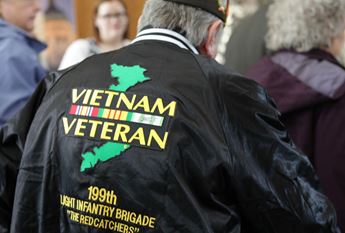

The Kansas Industrial Farm for Women
July 22, 2019
By Laura Phillippi
On Kansas Highway 5, sits several brick cottages. This is the location for a story of women, the law, and a reformer by the name of Julia Perry. For over 150 years, the Kansas State Penitentiary (KSP) has stood watch over Lansing, Kansas. This community within a community has seen many changes over the decades including a name change to Lansing Correctional Facility in 1990.
Before 1917, women sentenced to prison did their time in a small ward inside KSP. In 1917, the Legislature passed a quarantine law in an attempt to curtail “social diseases” (sexually transmitted diseases) known as Section 205.
If a person went to the doctor and discovered the patient had an STD, the physician reported the patient to the State. Those patients were convicted of violating Section 205 and given an indeterminate sentence at Lansing. More women were isolated than men, and many, but certainly not all, were prostitutes.
While Kansas authorized the establishment of the Kansas Industrial Farm for Women to treat those convicted of Section 205, the women started arriving before the funding became available with the new fiscal year. This led to some creative housing solutions by the warden including the use of tents, sheds, and other structures. Eventually the cottages constructed of prison-made brick were built to house the women.
On November 1, 1917, the Farm began with twenty-nine inmates, thirteen of which came from KSP. By June 30, 1918, 224 women had come to the Farm and forty-eight had been discharged. Dr. Sherman Axford served as the physician for the male and female inmates. He reported in the 1918 KIFW Biennial Report that 87% of the women had gonorrhea, 80% had syphilis, and 55% of the inmates were infected with both diseases.
In an age before antibiotics, doctors treated syphilis with a series of six injections of arsphenamine which contained arsenic. The treatment was not 100% effective, but it was the standard treatment until penicillin became available. Dr. Axford reported about half of the women treated with arsphenamine tested negative for syphilis after treatment.
Superintendent Julia Perry headed the institution and once wrote “Our work is to help.” A woman before her time, Mrs. Perry along with a handful of matrons set about to help their charges in body and spirit. To help women succeed in life after they returned to society, the staff taught the women sewing, household management, laundering, dairying, poultry raising, gardening, and “school of letters.” Women also took college extension classes. Education, life skills, and vocational training made it possible for many women to go back into the world and live productive lives.
Mothers with infants were allowed to keep their children with them until they turned two years old. This practice benefited both women and children. In addition, the Farm conducted Sunday church services to help the women spiritually. Through compassion and education, the staff of the Farm lifted up those who had fallen.
Despite only moderate success curtailing promescuity, the quarantine law remained in effect until 1956.
Join the Movement of Ideas
To learn more about “the Farm,” the women sentence to go there, and Julia Perry, book or attend Laura Phillippi’s Speaker’s Bureau talk, “The Kansas Industrial Farm for Women.”
Gallery
 View
View



